Autumn cycling - Mindelunden
Outside there is a slight summer rain, and the meteorologists believe that it will stay so for the time to come, so my daily biketrip will probably be a bit wet. But last week it was a wonderful late summer weather, windy and not too warm, but with a bright sun and impressive cumulus clouds in the sky.
I hadn't decided where to go so I simply took a fast decision every time I reached a crossroad. This took me north east through a large green area below the beautiful Bispebjerg Hospital.
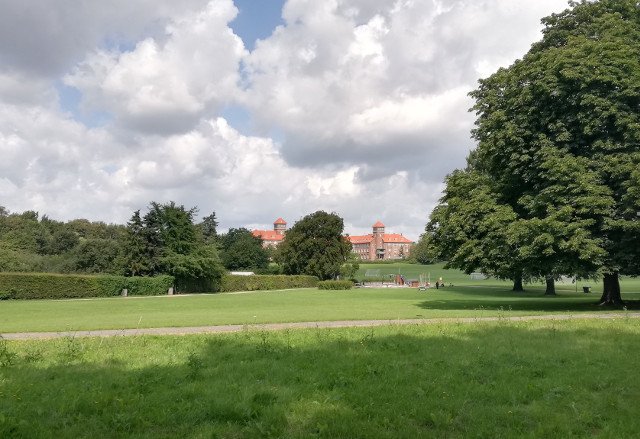
There is a long green stretch with nice biking tracks and some large newly built bicycle bridges that can take you over the motorway and all the way to Hellerup, one of the wealthiest neighbourhoods in Denmark, North of Copenhagen. So I just followed the road (or rather bicycle track) till I came out of the forest and onto Tuborg Road (named after the beer). And here I decided to stop and go for a little walk because right there is a place called Mindelunden (which means, Memorial Grove).
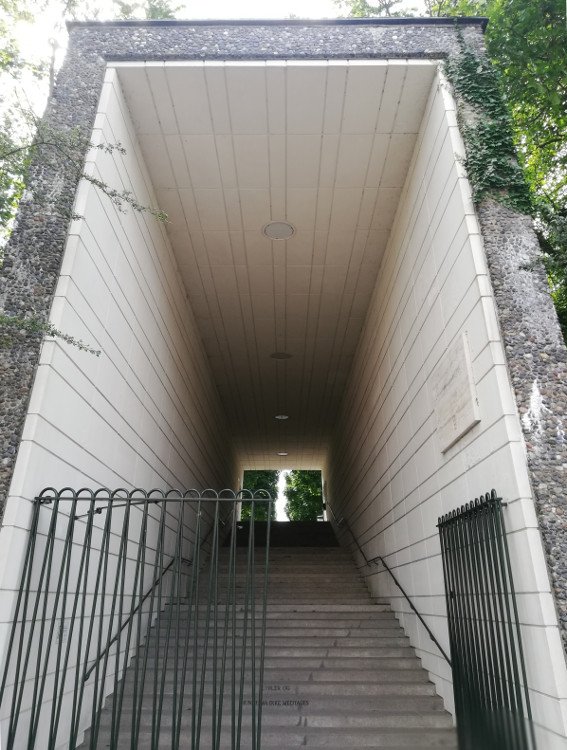
I had a hazy idea about what it was - a memorial park made after WW2 (which it is), but didn't know exactly what to expect. So I went in and was immediately thrown back to another time - the time of my childhood. The thing is that I'm old enough to have known the people who lived through the Second World War - it was my grandparents' generation. Back in the seventies and eighties the war still meant a lot to us , and the Memorial Grove emanated all the horror, doubting nationalism and abysmal sorrow that I, in my own childish way, could discern from the grown up's discussions and stories back then.
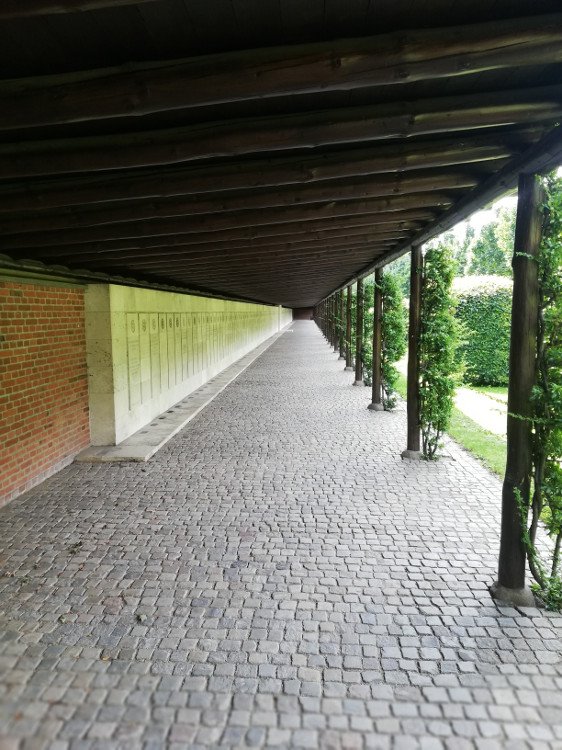
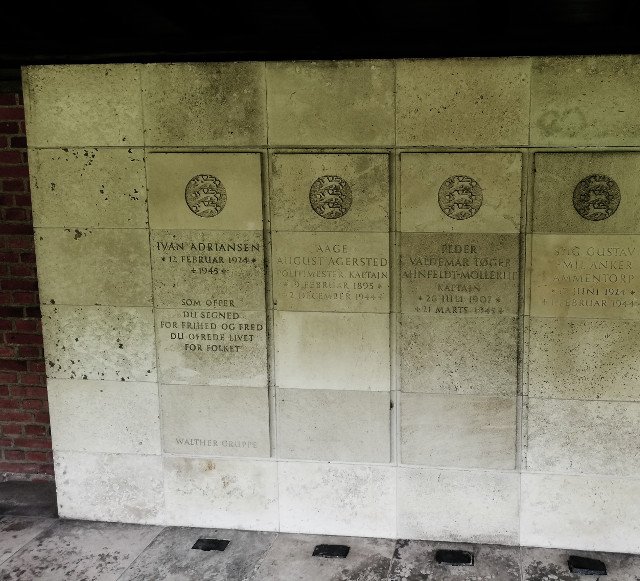
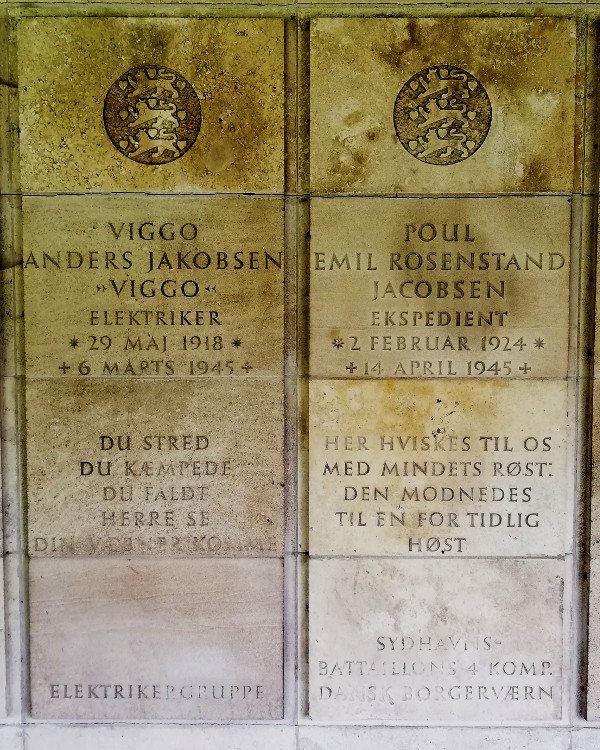
There was signs leading to the different parts of the park, and one of them said: The execution spot. The park was originally a Danish military barracks with an exercise field and shooting range. It was here the Germans in secrecy executed and buried members of the Danish resistance they had caught.
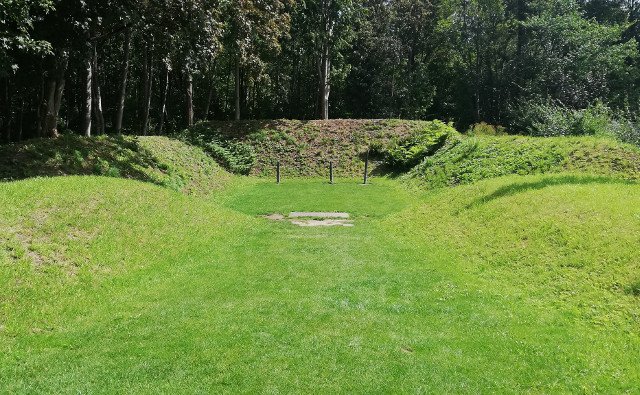
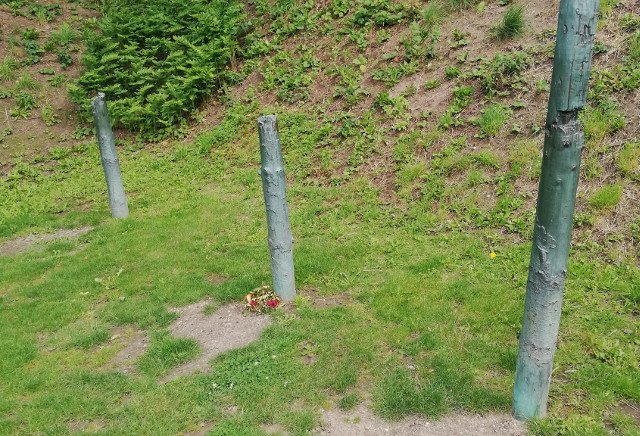
At this point I began to be strangely moved. The place was filled with all the mistakes, and glory, and suffering and shame of a generation that I have known myself. Even though they didn't participate or was to blame (fascism was to blame) I still remember the grave, often sombre and sorrowful, mood of the grown ups when they talked about the war. Being here in the Memorial Grove made me remember this.
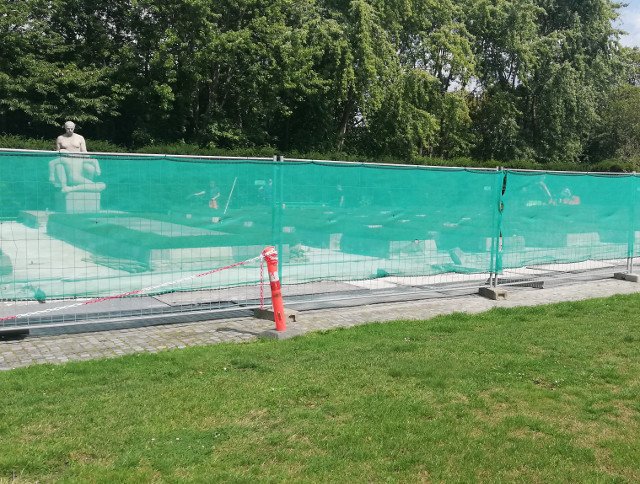
Before returning to my bike I also went to see the place 31 graves of people killed in German KZ camps.
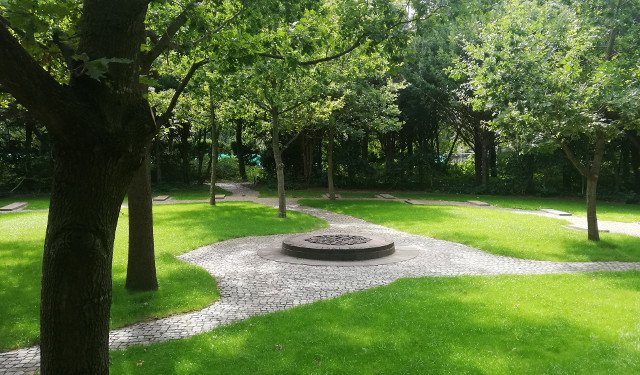
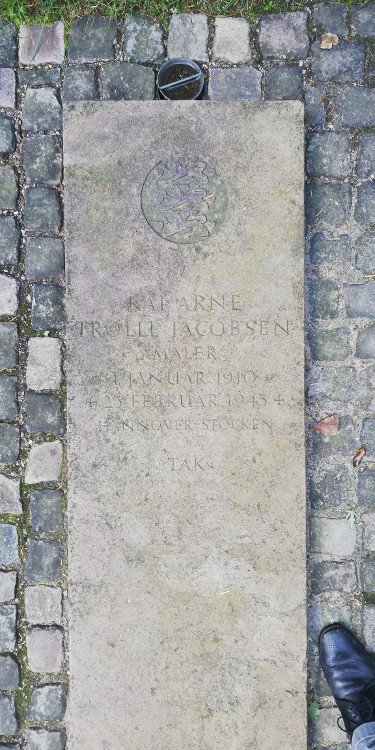
After this I returned to my bike and took another half hour biking in the sun. Many of the graves had the same little poem written on the stone. It is the last verse from a poem by the Danish, romantic writer, Christian Winther. It was used a lot in and after the war in connection with the resistance against the Germans, and sums up pretty well the pathos that was so typical for my grandparents generation, and (thankfully) so untypical of my children's.
It translated like this (without trying to rhyme):
Fight for everything you love,
die if necessary!
Then your life is not so hard,
neither is your death.

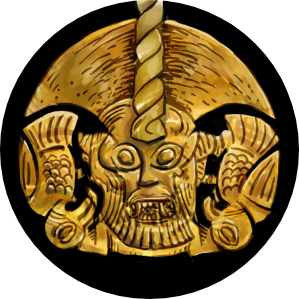
What a contemplative place. Both harrowing and beautiful, a reminder of a dark part of humanity. The things we can do to each other, and the things we have done, and the things some of us are probably doing to others right now.
Your narration is so thoughtful, your words bring me into a space where I, too, slowed down in my head to pay respects to the lost lives that were sacrificed in the terrible period of World War 2.
Thanks, mate. Your words make me happy.
This post was shared in the Curation Collective Discord community for curators, and upvoted and resteemed by the @c-squared community account after manual review.
@c-squared runs a community witness. Please consider using one of your witness votes on us here